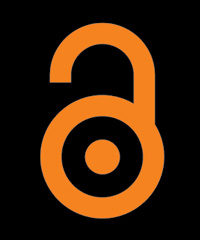UC OSC Blog
-
Reputation managment: your identity, your story
Unless you are a CIA operative or completely off the grid, you are very likely to have some sort of digital footprint beyond your published articles and departmental faculty profile. This can be a good thing if, for example, you are: entering the job market or looking for collaborators in interdisciplinary research; applying for a major research grant; hoping the media will call you for an expert opinion in your field of study; trying to reach the public and/or policy makers who are misunderstanding (and defunding) the research being done in your field. Having a digital presence beyond your formal […]
-
It’s here! CDL launches redesigned eScholarship
The Publishing group at the California Digital Library is pleased to announce the launch of a major redesign of the eScholarship publishing and repository platform. The new eScholarship site includes: Enhanced campus repository sites Advanced customization tools for journals and publishing units Expanded readership metrics, including Altmetrics for repository content Mobile friendly, interactive, and accessible experience for readers Open source technology solutions
-
UC campuses celebrate Open Access Week 2017
This year, international Open Access Week is October 23-29.. The theme, “Open in Order to…,” was chosen, according to Heather Joseph, Executive Director of SPARC, to highlight the many benefits of open access for different people, including “increasing citation counts, enabling anyone to learn from the latest scholarship, or accelerating the translation of research into economic gains.” The University of California Libraries have planned a variety of events this year in order to explore and celebrate issues related to open access. Find one near you!
-
A belated update on DMCA takedown notices
Back in 2014, the University of California got its first set of DMCA takedown notices for eScholarship, UC’s open access repository and publishing platform. I wrote about it here on the OSC blog, which you can check out if you want to see our tips for authors who want to avoid receiving a takedown notice (short version: post the right version of your article). I also said in that post that we’d report on any other notices that UC received for eScholarship, because we believe it’s important to be transparent about which publishers are using this procedure to target article […]
-
Redundancy is resistance: share your scholarship
Who has the right to make your scholarship available? Who is able to read it? And who can disappear it? If you haven’t given these questions much thought to date, it is worth having a fresh look as national conversations about the power of information—and the awful power of misinformation—continue to grow in prominence. It is a bleak testament to the importance of the academic enterprise that the ways in which scholarship is made and accessed are disputed territory in the campaign against facts.
-
California Digital Library supports the Initiative for Open Citations
The California Digital Library, along with 33 other stakeholders and 29 journal publishers, recently signed on to support the Initiative for Open Citations which will free citation data to the public. Daniella Lowenberg, Research Data Specialist / Dash Product Manager at CDL, wrote this post for the CDL Data Pub blog to announce CDL’s support for the initiative. We’re cross posting it here at the OSC blog to help spread the word. California Digital Library (CDL) is proud to announce our formal endorsement for the Initiative for Open Citations (I4OC). CDL has long supported free and reusable scholarly work, as […]
-
Statement on Commitment to Free and Open Information, Scholarship, and Knowledge Exchange
The University of California Office of Scholarly Communication (OSC) and the University of California Libraries issue the following statement in response to recent actions by the new federal administration and in order to address resulting concerns about continued open access to and preservation of information, scholarship, and knowledge. The unfettered exchange and careful preservation of information are fundamental to democracy, progress, and intellectual freedom. The critical research and scholarship conducted by government entities and academic institutions worldwide safeguard and support human rights, public health, the environment, artistic and literary enterprise, scientific and technological innovation, and much more. This scholarship is […]
-
Rocking out to fair use
Is using someone else’s copyrighted work always unlawful? Absolutely not. There are many circumstances where reproducing someone else’s copyrighted work is fair – more specifically, “fair use.” Examples of fair use include providing commentary, news reporting, academic research and scholarship, and even search engine interaction with copyrighted content. Academic libraries across the United States and Canada are celebrating Fair Use/Fair Dealing Week 2017 this third full week of February. How will you be taking part in the celebration? We at UCLA Library will be literally rocking out to a fair use performance of video game music as we close out […]
-
My dissertation is online! Wait – my dissertation is online!? Copyright & your magnum opus
You’ve worked painstakingly for years (we won’t let on how many) on your magnum opus: your dissertation—the scholarly key to completing your graduate degree, securing a possible first book deal, and making inroads toward faculty status somewhere. Then, as you are about to submit your pièce de résistance through ProQuest’s online administration system, you are confronted with the realization that—for students at many institutions—your dissertation is about to be made available open access online to readers all over the world (hurrah! and gulp). Because your dissertation will be openly available online, there are many questions you need to address—both about […]
-
Does the UC Open Access Policy miss the mark? Depends on which mark.
Institutional open access policies often get a bad rap. Critics point to their lack of “teeth”; their poor compliance rates; their failure, thus far, to effect substantial change within the economically unsustainable and locked down scholarly publishing environment. Motivated by the desire to free all scholarship from publisher access restrictions and the equally ambitious goal of empowering all authors to retain rights to their scholarly publications, these policies struggle mightily under the weight of expectations. But maybe we are expecting too much — or not enough.











